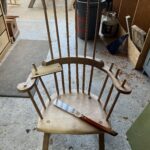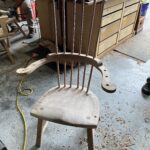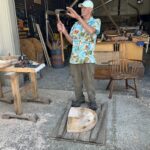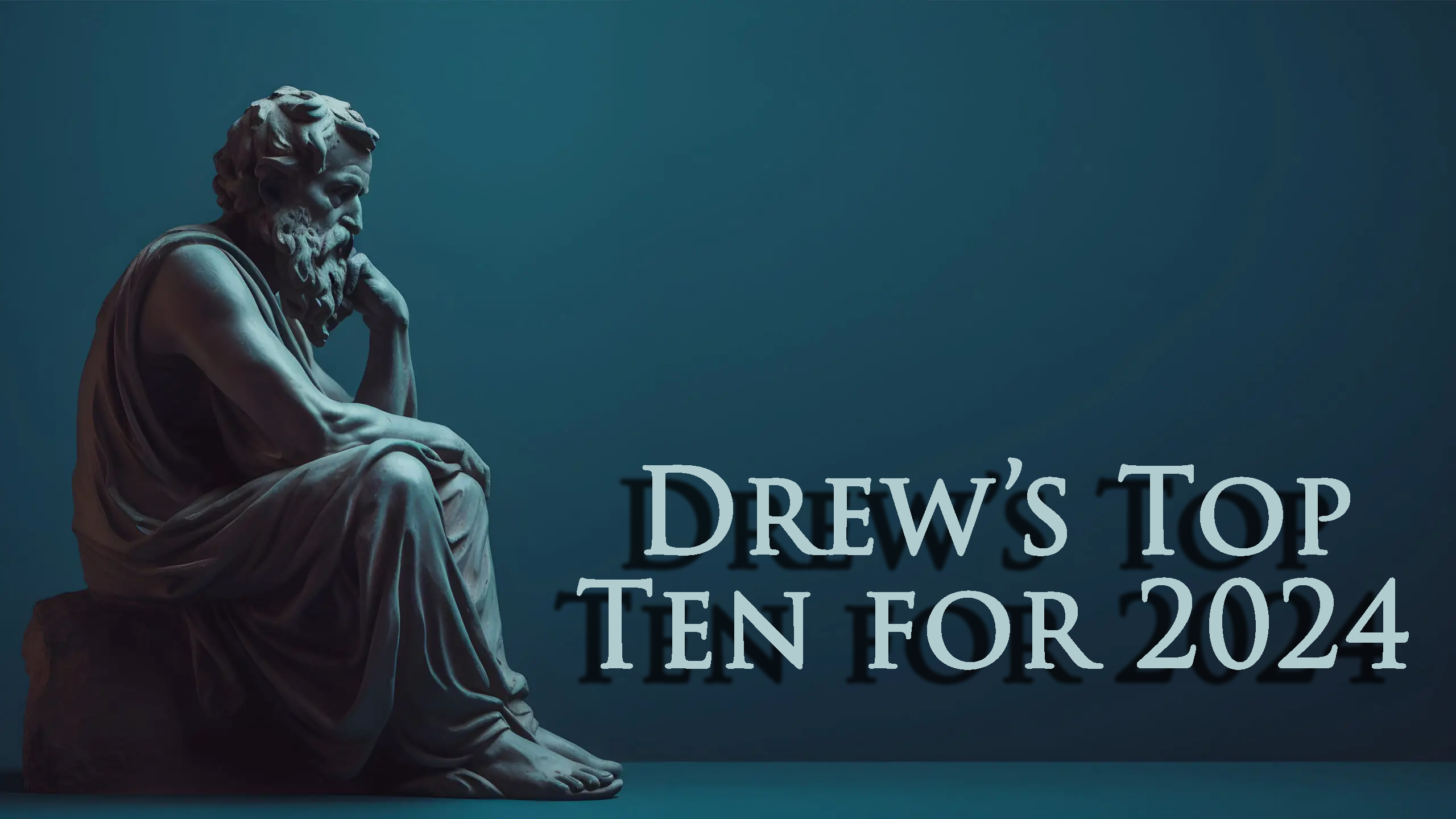Most educational endeavors typically follow a predictable course. First the student assumes they know a considerable amount about a subject because they have read books or have some experience around a subject. They say, “sure I can cook a soufflé’ because I ate one, one time, at a restaurant when I was twenty.” Then they actually begin the process of attempting to do something they thought they could do, only to realize they have no idea what they are doing. Then after continued effort and mistakes they reach the point of complete frustration and they quit — having realized the huge volume of things they need to know, yet do not know. Then the student keeps trying and makes some forward movement but the product is crude, primitive, clunky, and skewed. Finally, the student completes the task – not so much proud of the finished product, but that they have learned the steps and knowledge of how it is supposed to be done.
The end product (in my case a chair) is a monument of someone attempting something difficult, having learned some new skills, and having brought something new into the world (it could any creative thing from a painting, a cake, or leather shoes, etc.). The student then returns to the first step of the process to do it again, and then again, and then again until eventually they do indeed know how to do something with excellence. For the craftsman this process takes decades.
The beginning of wisdom is knowing that you really don’t know a whole lot.
This was my journey with chair making with Don Weber.[1] Don, speaking with a Welch brogue would call himself a Bodger, “Bodger is a British term describing someone who does a rough job of things. They used to turn these legs and sell them by the gross to the factories.” The method that we used to make the chairs could be done with the simplest of tools, in the most primitive of environments. He gave a gentle correction when I dug a sanding black out of a shop drawer. He said, “sandpaper turns to mush in the woods.” Don’s background and experience drives the student to make every part as if you were in the forest of the Amazon, or the mountains of Appalachia. The Welch Bodger has actually traveled into the Amazon Forest to teach the inhabitants to blacksmith the tools needed to make items from the wood of the forest to be sold so that they can stop deforesting and instead sell those items to make a living.[2]
So I took a five day class with Don Weber and two other fellow students to learn how to build a welch stick chair. Here are some “take aways.”
- In the course of five days of building I made several (big) mistakes that changed the look of the chair – I am not going to tell you what these mistakes were, but these mistakes made the chair very much my own In the creative process, mistakes are ok. They are how you learn to fix what you messed up. No one will know if you don’t point them out. Observers will think that was your intent the entire time.
- Learning involves big risks. Part of the chair building process is that you have to drill into the seat base to receive the spindles. Carving out the seat takes hours, and if you drill at the wrong angle or in the wrong spot it could ruin the bottom. Or at least, put you in a position of learning how to creatively hide drilled holes. Just saying that for a friend. But in those risks its ok to mess up. You are going to try to do it the right way, but if you mess up, its’ not the end of the world. Its’ just time and wood.
- I really enjoyed getting to know Don and the other two gentlemen in my class. One of the other students even has a business where he makes other stuff (other than welch chairs).[3] I was definitely the goat (lowest ranked) of the class. Part of the joy of making things is learning from other people and how they make things – and the friendship that is shared between creatives.
- At the end of the day, once the project is complete you have brought some creative thing into the world and it is yours. You made that. Now you can sell it, give it away, or sit on it and drink some coffee. But don’t sit too long there are still many more skills that you need to learn.
_______________
[1] https://www.woodworkersjournal.com/don-weber-the-bodger-of-paint-lick-kentucky/
[2] Knowledge allows you to carry less. Click here See another article I wrote on a similar topic.
[3] https://kyhandcrafted.com/































 During the winter months there is the inevitable weather closing, seasonal slowdown, or the purposeful taking of time to reflect on the previous year. The following are my top ten items for a leader as they are beginning a new year. These are not in order of importance, only the order that they fell out of the sky and landed on my subconscious.
During the winter months there is the inevitable weather closing, seasonal slowdown, or the purposeful taking of time to reflect on the previous year. The following are my top ten items for a leader as they are beginning a new year. These are not in order of importance, only the order that they fell out of the sky and landed on my subconscious.